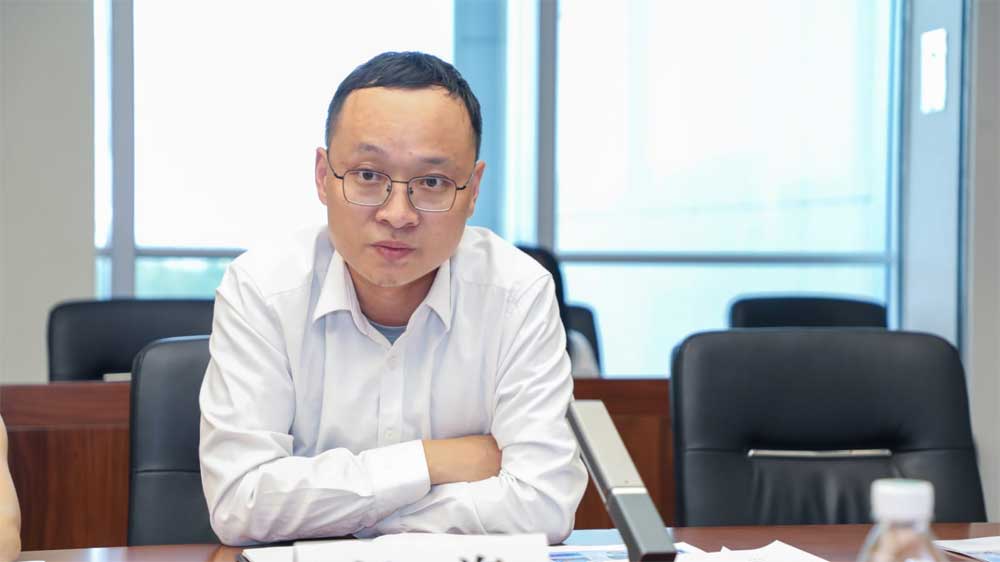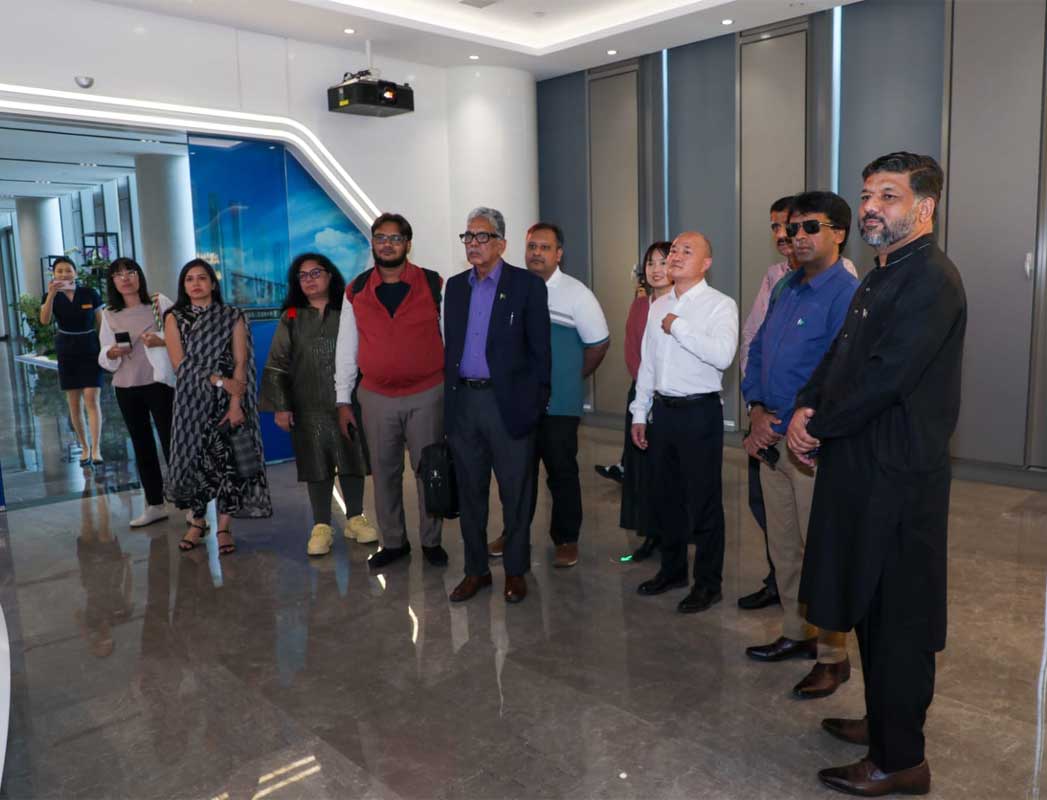

The China-Pakistan Economic Corridor (CPEC), a cornerstone of the Belt and Road Initiative (BRI), has been a game-changer for Pakistan’s infrastructure development. Spearheading this transformation is China State Construction Engineering Corporation (CSCEC), a global leader in the construction industry, responsible for some of the largest and most vital infrastructure projects in Pakistan. As the collaboration between China and Pakistan strengthens, the future prospects for joint ventures, knowledge sharing, and development between CSCEC and Pakistani firms are bound to shape the next chapter of the country’s infrastructure story.
CPEC Phase II: New Avenues for Construction Collaboration
While the first phase of CPEC focused primarily on energy and transportation infrastructure, the second phase is set to expand into broader socio-economic development, industrialization, and urbanization. This shift offers an exciting array of opportunities for further collaboration between CSCEC and Pakistani firms.
Expansion into Industrial Zones and SEZs
One of the key components of CPEC Phase II is the establishment of Special Economic Zones (SEZs) across Pakistan, aimed at industrializing the economy. SEZs such as Dhabeji, Rashakai, and Allama Iqbal Industrial City will require extensive construction expertise in infrastructure, utilities, and facilities to attract domestic and foreign investment. CSCEC, with its vast experience in building industrial zones in China, could play a pivotal role in developing these SEZs.

By partnering with local Pakistani construction companies, CSCEC can provide technical know-how, advanced construction methodologies, and technology transfer, while Pakistani firms can offer local expertise and insights into regulatory requirements. This collaboration can result in the construction of state-of-the-art industrial facilities, paving the way for a more robust manufacturing sector in Pakistan.
Smart Cities and Urbanization Initiatives
Pakistan is undergoing rapid urbanization, and the need for smart cities is becoming increasingly evident. Future collaborations between CSCEC and Pakistani firms could center around the development of smart city infrastructure. CSCEC’s cutting-edge expertise in smart city technologies-such as IoT integration, energy-efficient urban design, and green construction practices-can be applied to Pakistan’s growing cities, making them more livable and sustainable.
Pakistani firms, in partnership with CSCEC, can participate in this transformation by providing locally-sourced materials, labor, and project management capabilities. Joint ventures between CSCEC and Pakistani firms would not only enhance urban development but also ensure that local firms gain exposure to advanced construction technologies and sustainable practices.
Technology Transfer and Capacity Building
A key benefit of China-Pakistan collaboration in construction is the opportunity for technology transfer and capacity building within the local construction industry. CSCEC has been at the forefront of introducing cutting-edge construction methodologies, such as prefabrication, modular construction, and Building Information Modeling (BIM). Future collaborations could further enhance Pakistan’s construction capabilities through the following initiatives:
Prefabrication and Modular Construction
One of the biggest bottlenecks in Pakistan’s construction sector is the time and cost involved in large-scale projects. Prefabrication and modular construction-techniques that allow buildings or components to be constructed off-site and then assembled on-site-can drastically reduce construction time and costs. CSCEC has pioneered these techniques in China and elsewhere, enabling the construction of high-rise buildings in record time.
Future collaborations could involve joint ventures in prefabrication plants, where Pakistani firms partner with CSCEC to establish factories that manufacture construction components. This would not only reduce costs but also create jobs, streamline construction processes, and help address Pakistan’s housing shortage.
Training and Development Programs
As the construction industry in Pakistan becomes more sophisticated, there will be a greater need for highly skilled professionals who can operate advanced construction technologies and equipment. CSCEC has already initiated training programs for Pakistani engineers and technicians, providing them with hands-on experience in modern construction techniques.
Looking forward, these training initiatives could be scaled up to establish formalized skill development programs and construction academies in Pakistan. Collaborative programs between CSCEC and Pakistani universities or vocational training institutes could produce a new generation of engineers, architects, and construction managers who are well-versed in the latest global construction trends and practices.
Enhancing Local Business Growth
Another important aspect of future collaborations is the potential for local business growth. The influx of Chinese investment in Pakistan’s construction sector provides opportunities for local suppliers, contractors, and service providers to thrive. By collaborating with CSCEC on infrastructure projects, local businesses can access new markets, increase their capacity, and improve their competitiveness.
Joint Ventures and Subcontracting Opportunities
CSCEC’s large-scale infrastructure projects often require a wide range of services, including construction materials, equipment rental, logistics, and project management. Pakistani firms, particularly small and medium-sized enterprises (SMEs), can benefit from subcontracting opportunities, enabling them to work on large projects they might not otherwise have access to.
Joint ventures between CSCEC and Pakistani firms can also be formalized, allowing local companies to share in the profits while acquiring valuable experience in managing large-scale infrastructure projects. These partnerships can have a positive spillover effect on other industries, contributing to overall economic growth.
Supply Chain Integration
As CSCEC continues to expand its operations in Pakistan, there will be an increasing demand for locally sourced construction materials and services. Pakistani firms that are integrated into CSCEC’s supply chain can experience significant growth. For instance, local steel manufacturers, cement producers, and equipment suppliers can see increased demand for their products as CSCEC undertakes more infrastructure projects in the country.
By fostering long-term relationships with local suppliers, CSCEC can help strengthen Pakistan’s construction supply chain, making it more resilient and capable of supporting large-scale infrastructure projects.
Overcoming Challenges to Collaboration
While the future prospects for China-Pakistan collaboration in construction are promising, there are also challenges that need to be addressed to ensure successful partnerships.
Regulatory Alignment
One of the key challenges to future collaborations is navigating Pakistan’s complex regulatory environment. Construction projects often require multiple approvals from different government agencies, which can lead to delays. To facilitate smoother collaborations, it is essential for the Pakistani government to streamline regulatory processes and provide clear guidelines for foreign construction firms operating in the country.
Future partnerships between CSCEC and Pakistani firms will also benefit from transparent and predictable legal frameworks. Efforts to reduce bureaucratic red tape and expedite construction permits could enhance the efficiency of joint ventures and attract more Chinese investment.
Local Capacity Constraints
While collaborations between CSCEC and Pakistani firms hold great promise, there is still a gap in local capacity in terms of technology, technical expertise, and project management skills. To bridge this gap, a continued focus on capacity building is required. Future collaborations should include knowledge-sharing agreements, where Chinese engineers and project managers mentor their Pakistani counterparts, enabling local firms to take on more responsibility over time.
Broader Implications for Pakistan’s Infrastructure Development
The long-term benefits of future collaborations between CSCEC and Pakistani firms go beyond the immediate economic gains. These partnerships have the potential to transform Pakistan’s construction industry into a more modern, efficient, and globally competitive sector.
Economic Growth and Job Creation
The construction industry is a major driver of economic growth, and increased collaboration between Chinese and Pakistani firms can stimulate job creation across the country. As more infrastructure projects are launched under CPEC, there will be a greater demand for skilled labor, construction materials, and ancillary services, all of which can contribute to Pakistan’s economic development.
Improved Infrastructure for Sustainable Growth
The future of China-Pakistan collaboration in construction also promises to improve Pakistan’s physical infrastructure, from transportation networks to energy systems and urban development. This improved infrastructure will play a crucial role in enabling sustainable economic growth, facilitating trade, and enhancing the quality of life for Pakistan’s growing population.
A Pathway to Prosperity
The future prospects of China-Pakistan collaboration in construction are bright, with CSCEC and Pakistani firms poised to take on new and exciting projects in the years to come. By focusing on joint ventures, technology transfer, and capacity building, both countries can benefit from improved infrastructure, economic growth, and strengthened business relationships. Through continued collaboration, Pakistan’s construction industry can become a catalyst for long-term development, positioning the country as a key player in the regional economy.
As CPEC enters its next phase, the partnership between CSCEC and Pakistan will only deepen, unlocking new opportunities for progress and prosperity.





